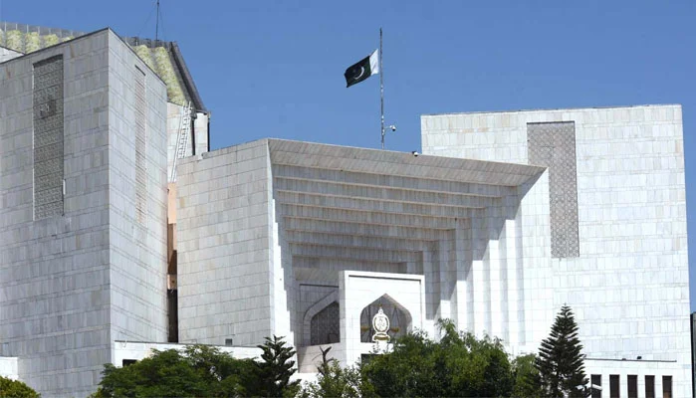ISLAMABAD, SEP 06 (DNA) : In a landmark decision on Friday, the Supreme Court accepted the intra-court appeals filed by the federal and provincial governments against the September 15, 2023 majority judgment in the National Accountability Bureau (NAB) amendments case.
A larger bench, headed by Chief Justice of Pakistan (CJP) Qazi Faiz Isa, ruled unanimously against the ex-CJP Umar Ata Bandial-led bench’s verdict striking down the amendments to the National Accountability Ordinance (NAO).
However, the verdict faced critcisms from law experts who described it as “vitrolic” and “partisan”.
‘Strange, vitriolic’ decision
Reacting to the SC verdict, Barrister Asad Rahim Khan said: “Yet another strange, vitriolic, and barely reasoned decision by this chief justice. That NAB had become an instrument of coercion and required reforming was plain for all to see.
“But the PDM regime’s solution — to gut the entire organisation via a set of person-specific amendments — was laughably illegal: a small segment of the political class getting rid of cases against itself.
Barrister Khan said that the “act of desperation has now been legalised by the court” on the basis that the public’s fundamental rights haven’t been affected.
“This is Nero playing the lyre: by the same metric, the Supreme Court should have decided to the contrary when it came to the National Reconciliation Ordinance — another exercise in which undemocratic forces had to launder politicians for cobbling together a government.
“These are bad decisions making for bad jurisprudence — the kind bereft of law, precedent, or serving the public interest,” he added.
Judgment doesn’t concern itself with amendments
Lawyer Salaar Khan said much of the discourse around the NAB amendments has been “partisan and disconnected” from the true role and effect of accountability laws in our political history.
“There is, in fact, a strong case to be made that many of the amendments made to these laws were steps in the right direction. Today’s verdict restores those amendments.
“However, to be clear, the Supreme Court’s judgment doesn’t concern itself with the substance of the amendments. Rather it simply finds, on appeal, that the previous decision failed to meet the proper threshold for declaring a law enacted by Parliament to be unlawful,” he said.
The lawyer emphasised that more particularly, it holds that no clear violation of the Constitution was identified. “In doing so, it stays true to the proper role of a court, as it reviews the constitutionality of laws passed by Parliament.”
Judgment viewed amendments from moral lens
Barrister Rida Hosain said that the dissent by Justice Syed Mansoor Ali Shah in the original case — now the majority view in appeal — is the correct one.
“The original judgment viewed the NAB amendments from a moral lens, rather than a legal lens,” she said, adding that in any case,
“the central point in the original judgment was that by increasing the threshold value of offences to be investigated and tried by NAB, ‘parliament has absolved’ holders of public office for their actions. The perception was that politicians would go scot-free”.
“It is wrong to say that the NAB amendments immunise elected holders of public office from accountability. The amendments raise the threshold value of offences to be investigated and tried by the accountability watchdog,” said Barrister Hosain.
She further said the point remains that elected holders of public office are still triable under other laws of the land i.e., Prevention of Corruption Act 1947 and the Pakistan Penal Code 1860 for corruption and corrupt practices.
“This is a change of forum.”
“The fundamental problem in Pakistan is that quests for ‘accountability’ have been and continue to be linked to political engineering. The absence of laws is not the problem,” she added.

















